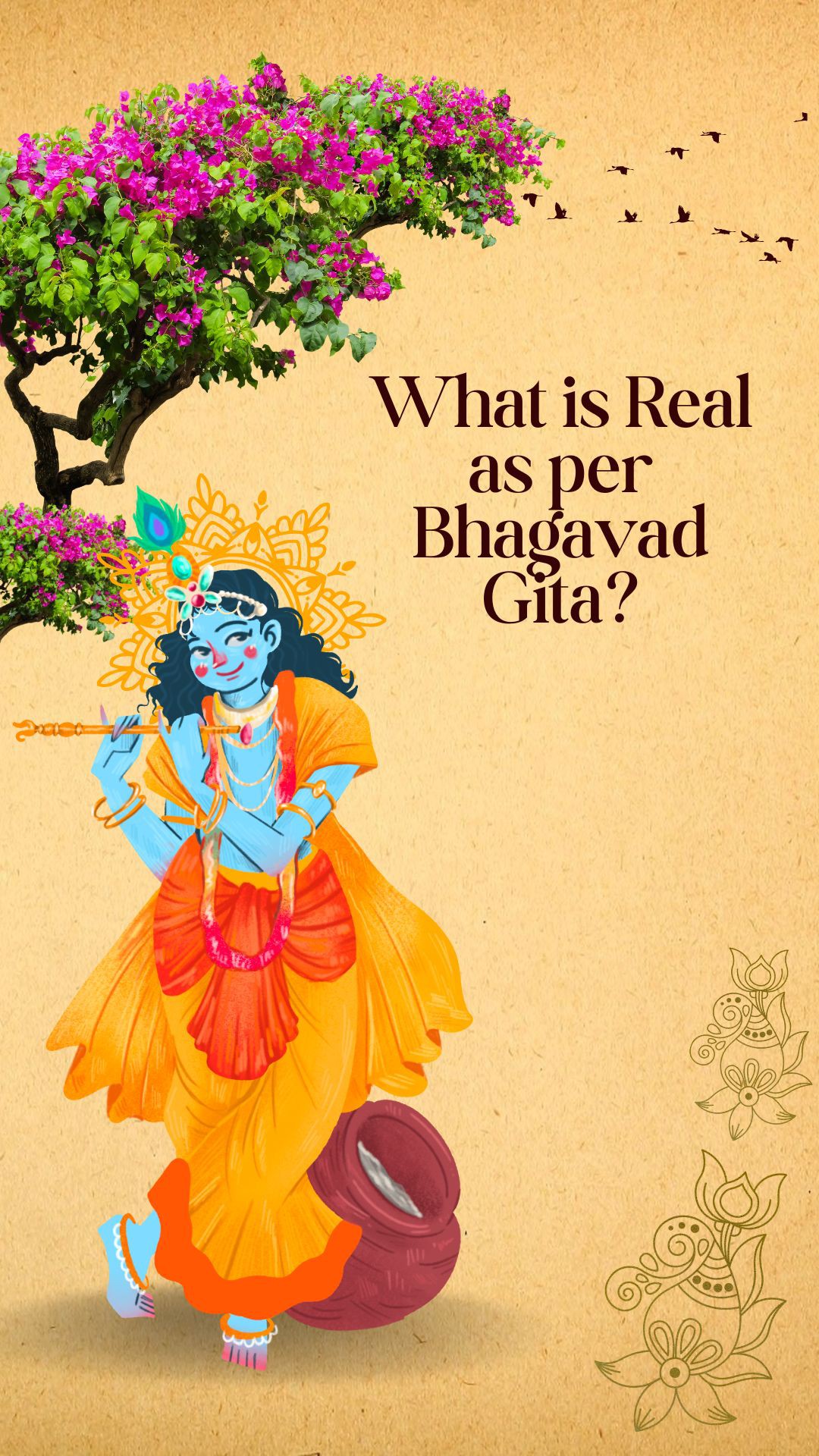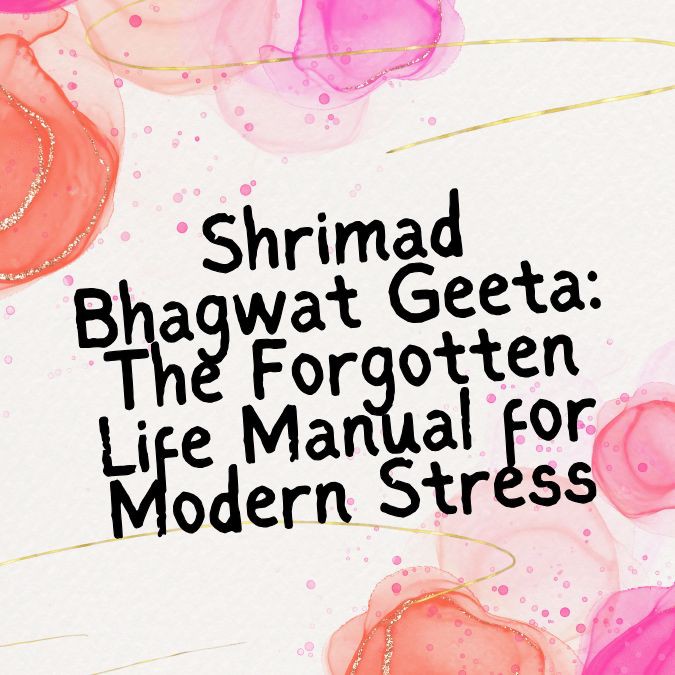The Bhagavad Gita explains love as devotion, equality, and surrender to God. Learn the hidden wisdom about love in...
What is Written in Bhagavad Gita About Love? Discover Divine Teachings
What is Written in Bhagavad Gita About Love? Eternal Wisdom on Divine Affection
Introduction
The Bhagavad Gita is not just a scripture; it is a timeless dialogue that provides solutions to the deepest questions of human existence. Spoken by Lord Krishna to Arjuna on the battlefield of Kurukshetra, this sacred text contains profound teachings on life, duty, the soul, God, and spiritual liberation.
One of the most universal questions people ask is: “What does the Bhagavad Gita say about love?” While the Gita may not use the word “love” in a romantic sense, it speaks extensively about divine love (bhakti), unconditional love, and the love that flows between the soul and God.
In this article, we will explore:
- How the Bhagavad Gita defines love.
- The difference between material love and divine love.
- Teachings of Krishna about love for God and humanity.
- Lessons we can apply in today’s world.
Love in the Context of the Bhagavad Gita
In everyday language, “love” is often understood as emotional attachment, romance, or affection toward family, friends, or material possessions. However, the Bhagavad Gita takes the idea of love to a higher and eternal level.
READ ALSO:- how many chapters in bhagavad gita
In Sanskrit, the highest form of love is called Bhakti—pure devotion toward God without selfish expectation. Krishna explains that this selfless love is the strongest bond that unites the soul with the Divine.
The Gita teaches that:
- Love rooted in the material world is temporary.
- Love rooted in God is eternal, pure, and liberating.
Key Teachings on Love from the Bhagavad Gita
1. Love Beyond the Body and Ego
Krishna tells Arjuna that the soul is eternal, while the body is temporary. Therefore, true love must be directed toward the soul and the Supreme Soul, not just the physical body.
Verse Reference: Bhagavad Gita 2.20 – The soul is unborn, eternal, and everlasting.
Hidden Wisdom:
- Love that is based only on physical beauty or temporary attraction fades with time.
- Love for the soul and for God is everlasting.
2. Love as Selfless Action (Karma Yoga)
Krishna emphasizes performing one’s duty without selfish motives. Love is not just about emotions—it is about action. When one serves others without expecting anything in return, that service is an expression of love.
Verse Reference: Bhagavad Gita 3.19 – Therefore, without attachment, perform your duty as a matter of love and devotion.
Lesson:
True love means to act for the benefit of others, without demanding recognition or reward.
3. Love Through Devotion (Bhakti Yoga)
The Gita repeatedly declares that devotion is the purest form of love. Krishna says that anyone who worships Him with a sincere heart is most dear to Him.
Verse Reference: Bhagavad Gita 9.26 – “If one offers Me with love a leaf, a flower, fruit, or water, I accept it.”
Lesson:
Love is not measured by wealth or material gifts but by sincerity and devotion of the heart.
READ ALSO:-how to read bhagavad gita
4. Love as Complete Surrender
Krishna concludes the Gita by teaching that the highest expression of love is surrender to God.
Verse Reference: Bhagavad Gita 18.66 – “Abandon all varieties of duties and simply surrender unto Me. I shall deliver you from all sinful reactions. Do not fear.”
Lesson:
Surrendering to God means trusting Him completely. This ultimate act of love frees the soul from fear and suffering.
5. Love and Equality Toward All Beings
Krishna explains that one who truly loves God sees all living beings equally, whether human, animal, rich, or poor.
Verse Reference: Bhagavad Gita 5.18 – The wise see with equal vision a learned scholar, a cow, an elephant, a dog, and a dog-eater.
Lesson:
Love is not limited to family or community. True spiritual love expands to embrace all living beings as children of God.
6. Love and Detachment
At first glance, detachment seems opposite to love. However, the Gita teaches that true love is free from selfish attachment. Attachment binds us to suffering, but unconditional love liberates us.
Verse Reference: Bhagavad Gita 6.9 – One who is equal to friends and enemies is most advanced in love and devotion.
Lesson:
Love is pure when it is free from conditions like “I love you if you do this for me.”
READ ALSO:-how many slokas in bhagavad gita
7. Love in Meditation and Remembrance
Meditation on Krishna is also described as an act of love. Constant remembrance of God strengthens the bond between the soul and the Divine.
Verse Reference: Bhagavad Gita 6.47 – “Of all yogis, the one who worships Me with love and devotion is the highest of all.”
Lesson:
Meditation is not just a mental exercise; it is an expression of love toward God.
Difference Between Material Love and Divine Love
|
Aspect
|
Material Love
|
Divine Love (Bhakti)
|
|
Based on |
Body, ego, possessions |
Soul and God |
|
Duration |
Temporary, changes with time |
Eternal, unchanging |
|
Nature |
Often selfish (expectation-based) |
Selfless, unconditional |
|
Result |
Attachment, fear of loss, suffering |
Peace, liberation, eternal joy |
|
Expression |
Romance, attraction, family ties |
Devotion, surrender, service |
What Can We Learn About Love from the Gita?
1. Love is Service
Helping others and performing duties with sincerity is an act of love.
2. Love is Equal Vision
True love is not partial—it sees all beings equally as parts of God.
3. Love is Devotion
Chanting, praying, offering, and surrendering are the highest expressions of love.
4. Love is Detachment
When love is free from selfishness, it becomes pure and divine.
5. Love Leads to Liberation
Material love binds us, but divine love frees us.
READ ALSO:-who wrote bhagavad gita
Bhagavad Gita and Modern Understanding of Love
Even in today’s world, where “love” is often equated with attraction or desire, the Gita gives a timeless message:
- Romantic relationships can be fulfilling, but they should not be the ultimate goal.
- Family love is valuable, but it must be balanced with spiritual duties.
- Divine love is the highest, as it connects us to our eternal nature.
For people seeking peace in relationships, the Gita suggests shifting focus from possessive love to selfless and devotional love.
Conclusion
The Bhagavad Gita beautifully explains that love is not merely an emotion but the very essence of spiritual life. It is not confined to romance or attachment but expands into devotion, service, equality, and surrender to God.
By practicing the Gita’s teachings on love, we can:
- Build stronger relationships.
- Find peace in times of loss or pain.
- Experience eternal joy through devotion to the Divine.
In short, the Gita teaches us that real love is divine love—a love that is unconditional, selfless, and eternal.












Leave a comment